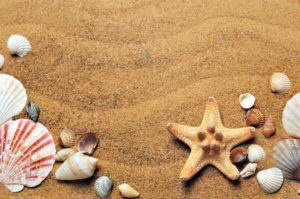Our Sunscreens & Coral
 Hawaii recently banned the sale of sunscreens containing some ingredients – particularly Oxybenzone and Parabens after some research showed the sunscreen may be affecting coral reefs. The research is not supported by all scientific groups, and is opposed in many quarters including the Hawaii Food Industry Organisation. The FDA (Federal Drug Administration) of the USA has not approved the ban. The biggest issue is with BP’s (benzophenones such as Oxybenzone), and it is this ingredient that has caused the most issues in Hawaii and the Florida Keys. We believe these risks are partially valid. See this article from Time Magazine for a nuanced view.
Hawaii recently banned the sale of sunscreens containing some ingredients – particularly Oxybenzone and Parabens after some research showed the sunscreen may be affecting coral reefs. The research is not supported by all scientific groups, and is opposed in many quarters including the Hawaii Food Industry Organisation. The FDA (Federal Drug Administration) of the USA has not approved the ban. The biggest issue is with BP’s (benzophenones such as Oxybenzone), and it is this ingredient that has caused the most issues in Hawaii and the Florida Keys. We believe these risks are partially valid. See this article from Time Magazine for a nuanced view.
The big answer is this – if the sunscreen is waterproof enough it will do no damage! As a company, Seabase has huge empathy with the ocean and its users, and any product that may affect the ocean. However, be aware of all the facts:
- All of our Organic spf50+ sunscreens are paraben free, and do not contain Oxybenzone. They are all coral safe! Our sunscreens are 100% water resistance – performing for up to four hours. This action alone reduces the chance of our sunscreen affecting the ocean, as they do not readily dissolve in water. Our sunscreens contain a form of Octinoxate known as Oxy-Methoxy-Cinnamate. This product used in our sunscreens is completely insoluble in water!
- The biggest source of parabens and benzophenones (BP’s) in our oceans – by a margin of 200,000 to one – is from sanitary & cosmetic products, including: nail polish, foundations, fragrance, hair and body shampoo, conditioner, hair spray, and moisturisers. Unlike sunscreen, these products are in frequent, everyday use by all consumers in one form or another. They have NOT been banned in Hawaii despite the supposed contribution to ocean pollution. Sunscreen’s contribution to the issue is minute in comparison. Nevertheless, we do not use parabens or BP’s in our spf50+ Organic Sunscreens.
- Many scientists disagree that sunscreens have any effect on coral bleaching. Here is a sensible, scientific article on the issue. http://theconversation.com/theres-insufficient-evidence-your-sunscreen-harms-coral-reefs-109567 with references to studies and evidence. The science in The Conversation is written by scientists who are experts in their field.
- Australia, whose reefs are most at risk from human efforts and (supposed) warming seas, has not found the same risk correlation to their coral, and have not banned these ingredients. They consider the safety advantages, and risk if any, are far out-weighed by the minute risk from sunscreen, particularly if the ingredients are insoluble.
- Our sunscreens are NOT banned from being taken to any country, city or island, including Hawaii.
- We do not shout about our coral-safe status, as the principal concern for us is the safe prevention of skin cancer. Many sunscreens claiming to be completely coral safe contain a dangerous form of mineralised sunscreen, known as nano Zinc Oxide (nZnO). This form of particularised mineral is known to penetrate the skin and its serious effects are just becoming more understood. They are quite dangerous. Our sunscreens do not contain nano particles of any ingredient in our mineralised sunscreens.
- Mineralised sunscreens, the sort that claim less coral damage, do not offer full protection against damaging UVA rays. These cause deep tissue damage not visible like sunburn. Only good Organic Sunscreens offer the fullest UVA protection, and a factor of 50+ for broad spectrum protection. Water and sweat resistance is vital, as is a safe sunscreen that does not penetrate the dermal layer deeply. (See Organic v Mineralised here) Choose carefully!





